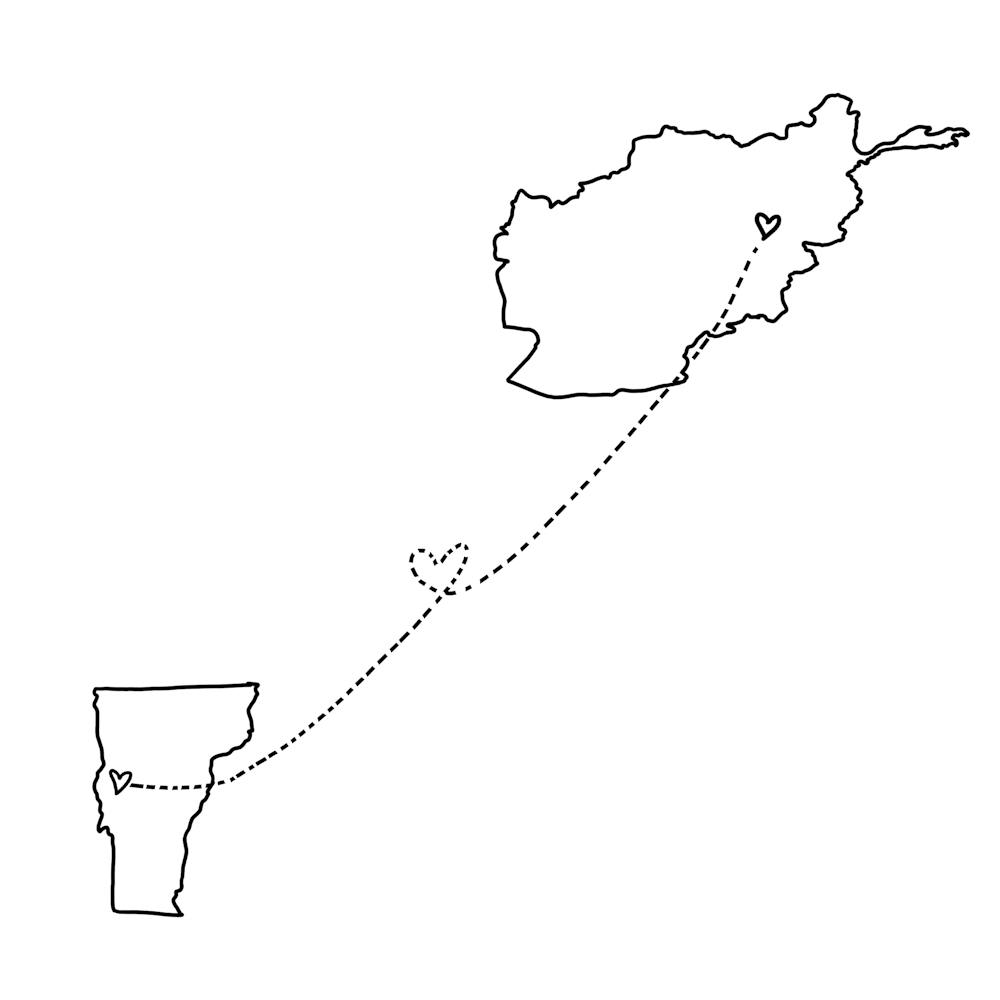I am one of the eight new BOLD-SOLA Leadership Scholars that were evacuated from Kabul, Afghanistan, on August 17, 2022, to Qatar, then to Kigali, Rwanda. Now we are all here, at Middlebury College, ready to start our academic careers, but thoughts of home — what it is, what it means and where to find it — linger.
My friends have a hard time defining the word home. اقامتگاه in Persian, and home in English is defined to be a place where we are permanent residents. A word that these days brings uncertainty and discomfort to many of my fellows who had to leave Afghanistan, because of the new Taliban takeover, in search of a safer shelter. While home for many is a familiar experience, it changes depending on geography, people and situation. For me, it is a feeling: where you feel loved, where you feel like you belong.
It’s like the warm feeling of entering a cafe on a snowy evening and hearing familiar music in the background. While recognizing many people and understanding the language they speak, you sit and order the meal you know you will not be able to find or taste anywhere like it in the world. That is the test of home, the feeling of being connected, of belonging. On August 17, I left my home carrying only a passport and a few little belongings. A small map of Afghanistan was among them. Trembling about being surrounded by a terrorist group and the firing rifles, I touched the hand of my sixteen-year-old brother for the last time, smiled, and hurried, leaving the only place that had made me a complete individual. And after, I was shattered.
No matter where you are, no matter where you go, exile carries nothing but misery of loneliness and emptiness. In “Reflection on Exile,” Edward Said says that exile is an “unhealable rift forced between a human being and a native place, between the self and its true home.” And he argues that “the achievements of exile are permanently undermined by the loss of something left behind forever.” In search of a home, we might find a place to make a living, but an emptiness felt deep in our souls is always there longing for what was once ours.
When we left our little apartment — located in a beautiful corner of Polytechnic University in Kabul — to the airport, my little sister wrote, “As I write, I miss our beautiful home. I miss the tableau on the wall, the decorated candles, the clock, and all those Eid days and Yalda nights that will be forever remembered in my mind and inside the walls of the little house.” For her, while home was a feeling, it was a place too, located in a defined geography, where she found safety and comfort. Many find it challenging to share a sense of connection and belonging to a place, as they do not share the same values, background and perspectives. In search of a home, many of us might find a safer place, but for many it never turns out to be simply one place.
We, the people of Afghanistan, for years have been facing an imposed war. We have been suffering at every level. In the early ages of life, growing up in Afghanistan I touched and felt deep down what it means to lose a loved one, as I lost many. I learned and watched the ache of struggle, as we suffered more. Yet, nothing was as difficult as leaving home when you find nothing to fight for and be hopeful about.
Sajia Yaqouby is a member of the class of 2025.5.




